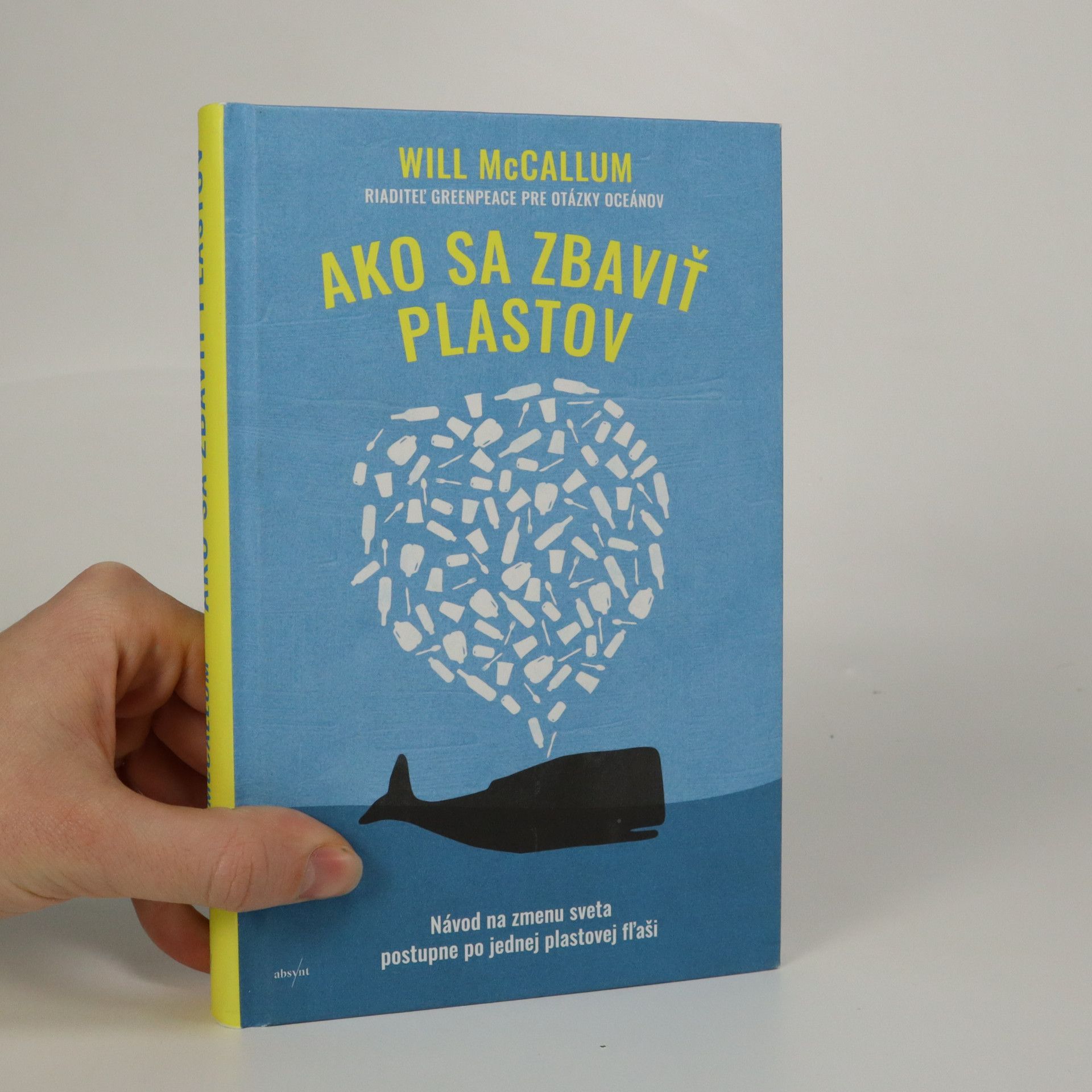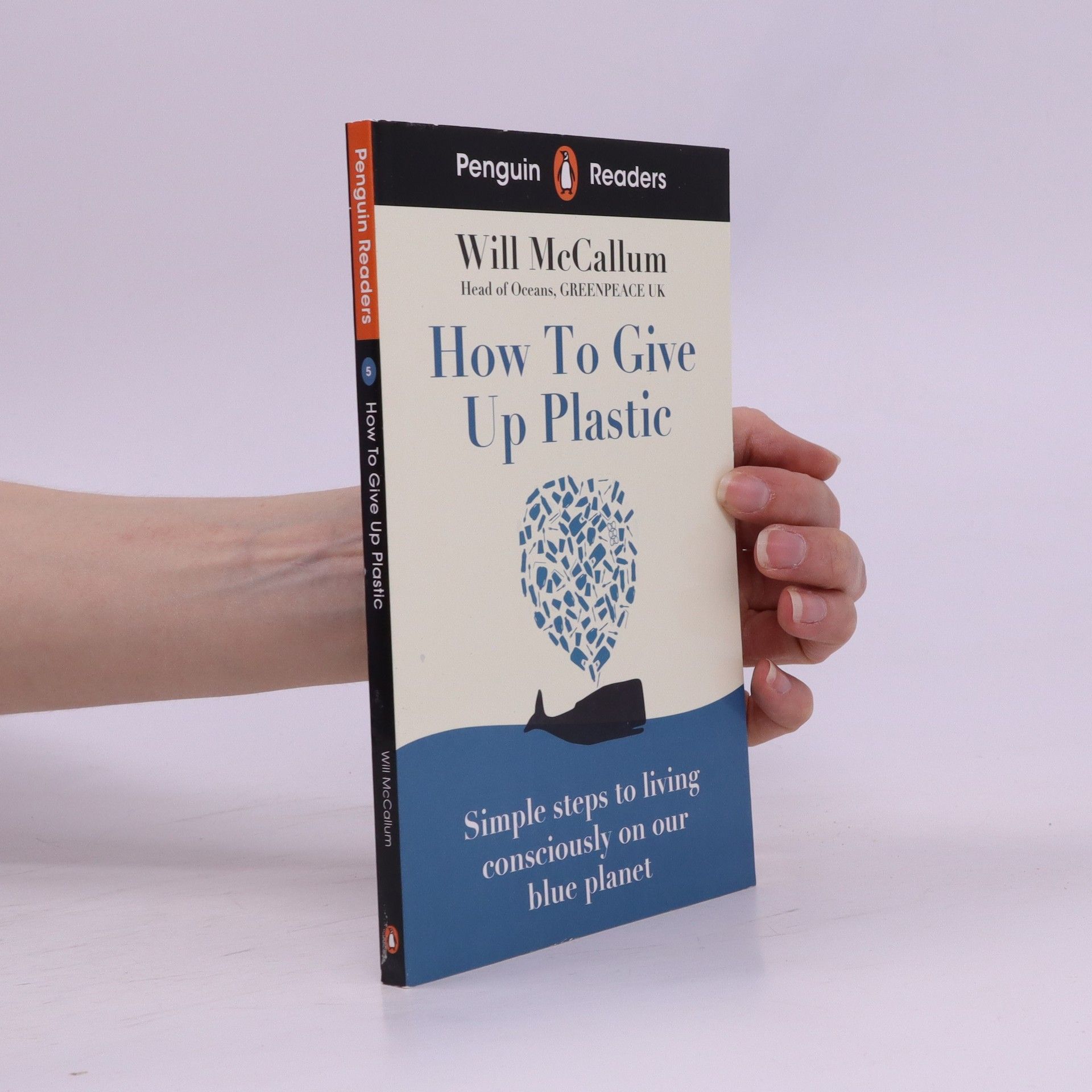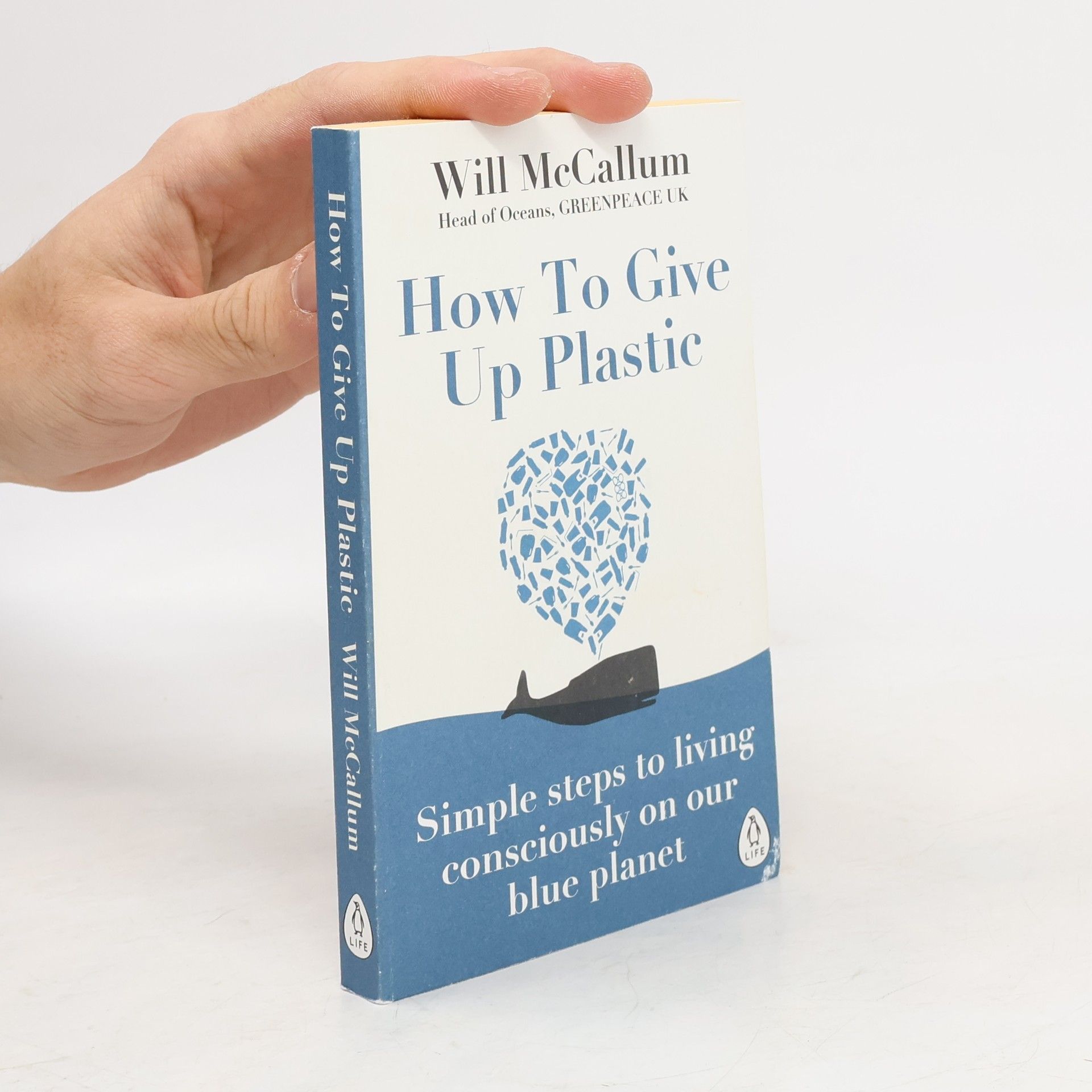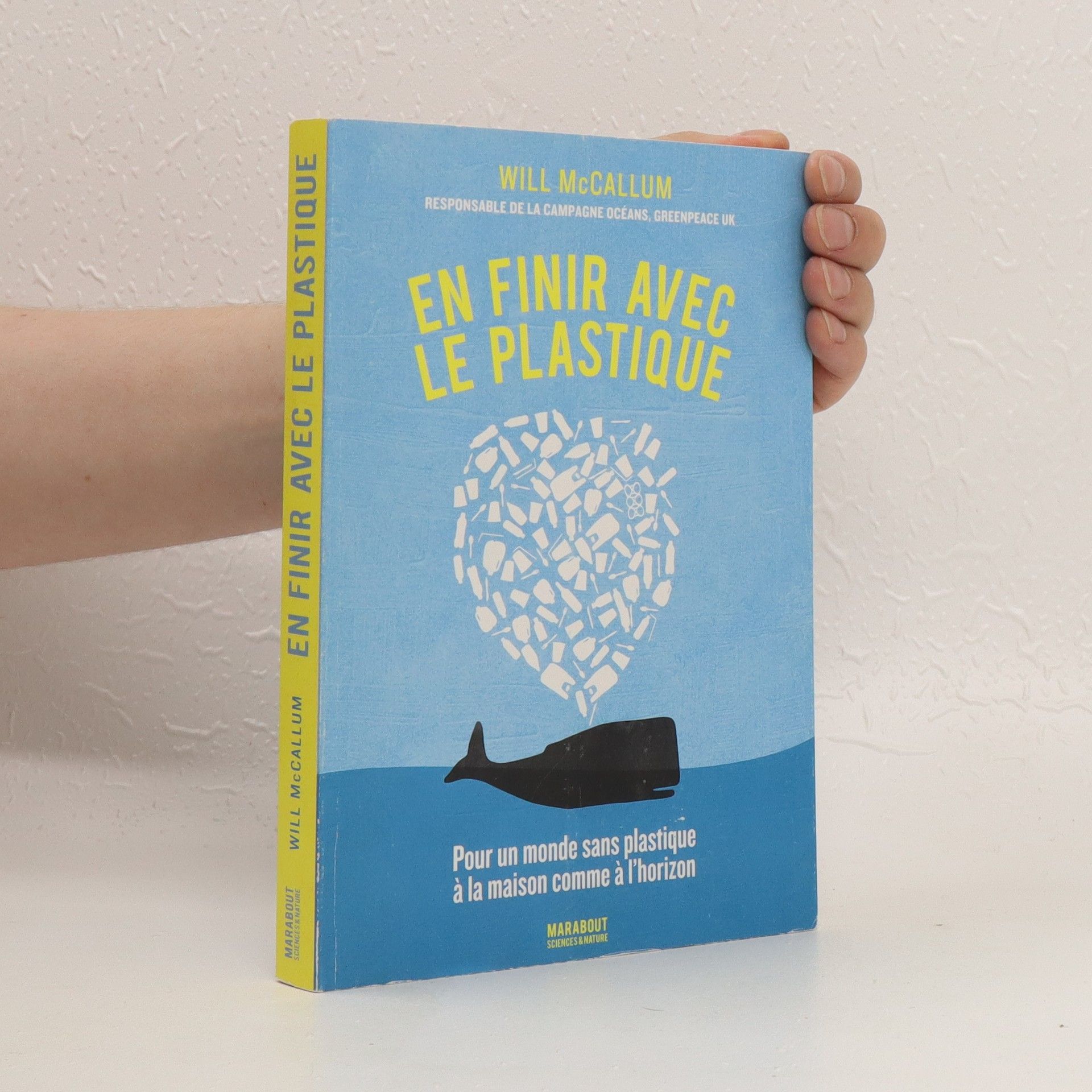Le plastique fait des ravages dans nos océans : 12,7 millions de tonnes de plastique sont déversées dans nos océans chaque année, tuant 1 million d'oiseaux marins et 100 000 mammifères marins. D'ici 2050 il y aura plus de plastique que de poissons dans nos océans si nous ne changeons rien. Le guide essentiel pour apprendre ce que l'on peut faire au quotidien pour réduire notre usage du plastique à la maison, au bureau, etc. De l'astuce basique d'utiliser une tasse et non un gobelet en plastique pour votre café du matin, au conseil moins connu de fixer un filtre sur votre machine à laver le linge pour réduire le rejet de micro fibres de nos habits (les micro fibres sont responsables de 30 % du plastique dans les océans). L'auteur vous plonge dans un récit passionnant qui présente nt les dernières recherches, des conseils pratiques et des anecdotes de scientifiques et liste ainsi ldes actions positives à travers le monde qui ont porté leurs fruits à travers le monde. Un livre d'initiatives positives qui nous encouragent à changer nos habitudes pour en finir avec notre dépendance au plastique.
Will Mc Callum Livres







How to Give Up Plastic
- 224pages
- 8 heures de lecture
Plastic is everywhere - from the deepest canyons in the ocean to the frozen Arctic tundra. 12.7 million tonnes of plastic are entering the ocean every year, killing over 1 million seabirds and 100,000 marine mammals; by 2020 there is likely to be more plastic in the ocean than fish by weight. Plastic pollution is the environmental scourge of our age, but how can youmake a difference? This book offers a handy guide for what we can do in our own homes, communities and workplaces to start bringing about the end of our plastic dependent age. It covers all ground, from easy wins such as using a reusable keep cup for your morning coffee, to lesser-known hacks like fixing a filter to your washing machine to catch some of the mircofibres released from your clothes (microfibers are responsible for up to 30% of plastic in the ocean). But it will also help you to be a part of big changes, offering insights into how to lobby for impactful legislation and how to put pressure on big corporations to reduce the use of plastic on a global scale. Packed with the latest research, useful tips, and anecdotes from scientists in the field and success stories from local communities round the world - this is an essential overview of why we should all be working together no matter where we are in the world to reduce the amount of plastic being produced.
How to give up plastic. Simple steps to living consciously on our blue planet
- 240pages
- 9 heures de lecture
A practical guide to cutting back the amount of plastic we use, by the Head of Oceans at Greenpeace.Plastic is everywhere - from the deepest canyons in the ocean to the frozen Arctic tundra. 12.7 million tonnes of plastic are entering the ocean every year, killing over 1 million seabirds and 100,000 marine mammals; by 2050 there is likely to be more plastic in the ocean than fish by weight. Plastic pollution is the environmental scourge of our age, but how can you make a difference?This book offers a handy guide for what we can do in our own homes, communities and workplaces to start bringing about the end of our plastic dependent age. It covers all ground, from easy wins such as using a reusable keep cup for your morning coffee, to lesser-known hacks like fixing a filter to your washing machine to catch some of the mircofibres released from your clothes (microfibers are responsible for up to 30% of plastic in the ocean). But it will also help you to be a part of big changes, offering insights into how to lobby for impactful legislation and how to put pressure on big corporations to reduce the use of plastic on a global scale. Packed with the latest research, useful tips, and anecdotes from scientists in the field and success stories from local communities round the world - this is an essential overview of why we should all be working together no matter where we are in the world to reduce the amount of plastic being produced
"Around 12.7 million tonnes of plastic are entering the ocean every year. By 2050 there could be more plastic in the ocean than fish by weight. But you can make a difference. This book will help you to use less plastic in your homes and communities"--Back cover
V roku 2050 bude vo svetových oceánoch viac plastov ako rýb. Naďalej však do morí prúdi každú minútu jedno smetiarske auto plné plastov, naďalej sa každú sekundu vyrobí 20 000 plastových fliaš. To už je skutočný dôvod na paniku! Plastový odpad je jednou z najväčších environmentálnych katastrof súčasnosti. Všetci máme pred očami morské vtáctvo s útrobami plnými plastu a uvedomujeme si, že zmena je životne dôležitá. Ako ju však urobiť? Will McCallum, guru hnutia bojujúceho proti plastom a riaditeľ Greenpeace pre otázky oceánov napísal mimoriadne dôležitú a zrozumiteľnú knihu, ktorou nás chce motivovať k tomu, aby sme krok za krokom zredukovali plastovú stopu v našich životoch. Začať môžeme odmietnutím jednorazovej igelitky a skončiť zorganizovaním protestu proti používaniu plastového riadu na akciách v našom meste. Kniha Ako sa zbaviť plastov je praktický sprievodca plný dôležitých a dobrých rád, v ktorom spolu s autorom postupujeme krok za krokom nielen k lepšiemu pocitu, ale aj k záchrane našej planéty. Je o päť minút dvanásť! Zobuďme sa!
Plastik ist DIE ökologische Herausforderung des 21. Jahrhunderts. Millionen Tonnen an Kunststoff verschmutzen die Weltmeere und töten ebenso viele Tiere. Wenn sich nichts ändert, wird sich im Jahr 2050 mehr Plastik als Fische in den Meeren befinden. Mit schlimmen Konsequenzen für das gesamte ökologische System – und auch für den Menschen. Die gute Nachricht: Jeder Einzelne kann dazu beitragen, dass diese Katastrophe nicht eintritt. Will McCallum, Head of Oceans bei Greenpeace, steht an der Spitze des Kampfes gegen Plastik, und zeigt uns in seinem Ratgeber anschaulich, was wir zuhause und in unserer Umgebung ganz einfach verändern können, um ein Teil dieser weltweiten Bewegung zu werden. Mit einem Nachwort des deutschen Greenpeace-Experten Manfred Santen.